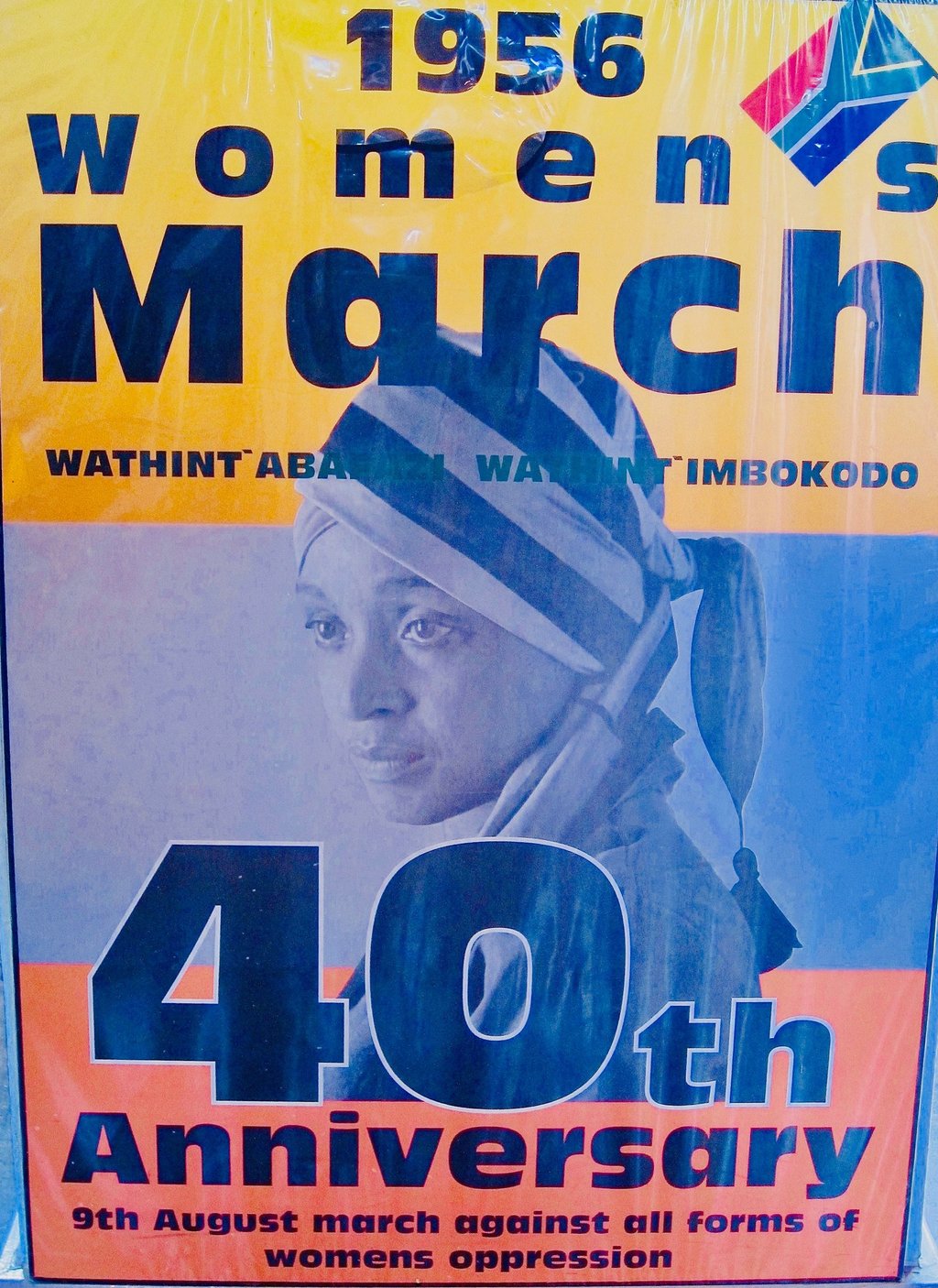Wathint' abafazi Wathint' imbokodo
You strike the women, you strike a rock (in zulu). Under apartheid, a march took place on 9 August 1956 in Pretoria with around 20,000 women...
3/12/20252 min read


I saw this poster of the Women's March in August 1956 in Pretoria during a visit of Nelson Mandela's house in Soweto which became a little museum in 1977.
The main objectives of this march were to protest against the introduction of the Apartheid pass laws for black women in 1952 as well as to present a petition to the then Prime Minister J. G. Strijdom.
This march was organized by the anti-apartheid organization called "Federation of South African Women".
Here is the text of the petition:
"We, the women of South Africa, have come here today. We African women know too well the effect this law upon our homes, our children. We, who are not African women know how our sisters suffer. For to us, an insult to African women is an insult to all women.
- That homes will be broken up when women are arrested under pass laws.
- That women and young girls will be exposed to humiliation and degradation at the hands of pass-searching policemen.
- That women will lose their right to move freely from one place to another.
We, voters and voteless, call upon your government not to issue passes to African women. We shall not resist until we have won for our children their fundamental rights of freedom, justice and security."
I admire all these women who gathered in Pretoria more than sixty years ago. Today, at a time when feminist and Afro-feminist movements and initiatives are developing in Africa and beyond, this march and this petition remind us that mobilization to fight for women's dignity and rights has not begun in recent years.
Given the system of repression and humiliation in place, we can only imagine and salute the courage of these women who protested publicly and peacefully, but with a strong and vital message to the apartheid regime.
There is still so much to be done in South Africa and throughout the world to achieve equality between women and men politically, economically, legally, culturally and socially. Achieving this goal will only make our societies fairer and happier.
Wathint' abafazi Wathint' imbokodo.
----------
And for more information on Nelson Mandela House, click HERE.
© 2025.
